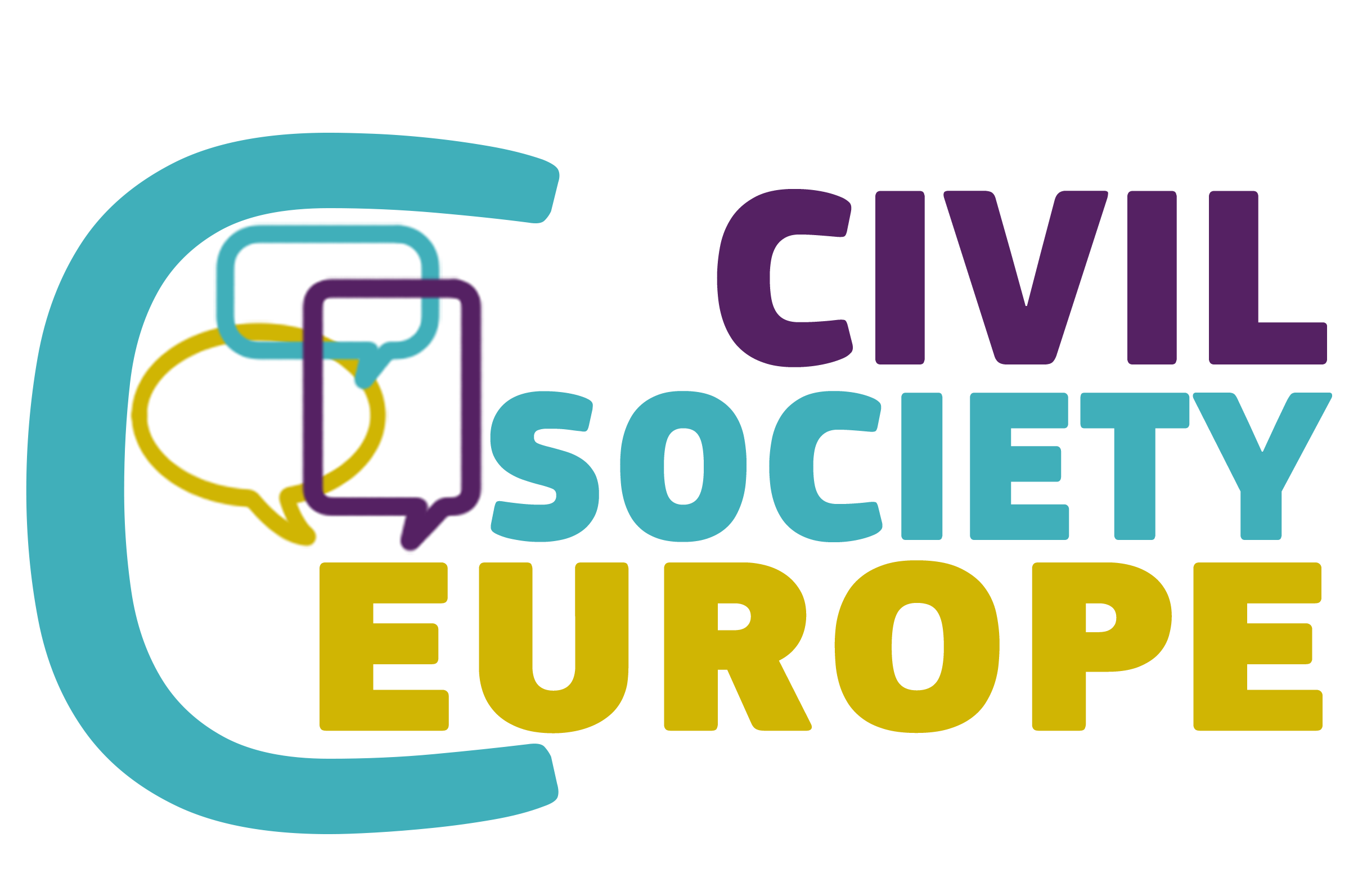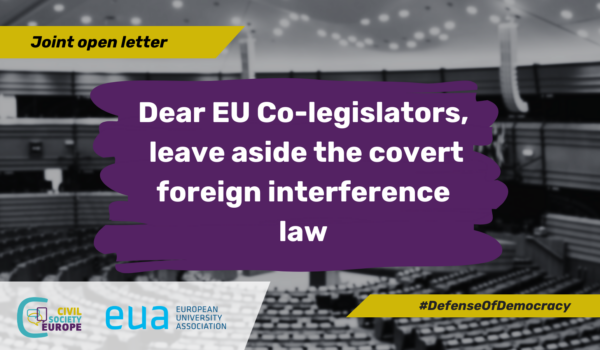Civil Society Europe and The European University Association (EUA) voiced their concerns over the proposed directive on covert foreign interference —as part of the Defence of Democracy package released on 12 December 2023— in a joint letter sent to the European Parliament, the Belgian Presidency of the Council of the European, and the Permanent Representatives of the Member States.
The proposal for a directive establishing harmonised requirements in the internal market on transparency of interest representation carried out on behalf of third countries – if adopted – will impact a wide range of civil society organisations, as well as private and public institutions, such as universities and research centres, while being ineffective in reaching its key objective.
The proposal raises several key concerns in terms of efficiency, fundamental rights, global foreign policy and legality, as it risks:
- Being inefficient and potentially counterproductive. NGOs or academic institutions which receive international funding would be suspected of representing foreign interests.
- Undermining the core fundamental rights principles of necessity and proportionality including through an adverse impact on the freedom of the arts and science
- Undermining the EU’s own efforts to strengthen democratic freedoms across the globe.
- Contradicting the planned legal basis under Article 114 of the Treaty on the Functioning of the European Union, potentially obstructing the free movement of capital.
We call on EU member states and the European Parliament to leave aside the foreign interference law as part of the Defence of Democracy package, while maintaining other important elements such as the planned recommendation on participation of civil society and citizens in public policy making. Following a more comprehensive and inclusive consultation, the next Commission could consider legislation that will strengthen and align existing Transparency Registers, addressing both internal and external funding.


